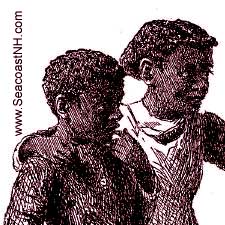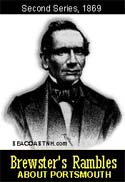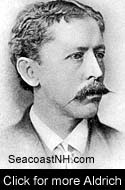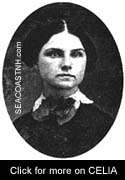|
FRESH STUFF DAILY |
|
|
||
|
|
||
|
|
||
|
SEE ALL SIGNED BOOKS by J. Dennis Robinson click here |
||
Portsmouth’s African American history has long been the property of white writers. Well into the late 20th century, most published accounts of the city’s black citizens were told with evident racial bias. Today, however, the rules have changed and equality of language is changing the way America speaks.
The Changing Language of Black History NOTE: HISTORY MATTERS appears every other Monday in the Portsmouth Herald. Racism still gnaws at the American soul. Critics lambasted presidential candidate Hillary Clinton recently when she noted that it took President Lyndon Johnson’s Civil Rights Act to fulfill Martin Luther King’s dream of racial equality. Days later a video of her husband Bill snoozing through a Martin Luther King Day speech was among the most-watched clips on YouTube.com. Actor Michael Richards and radio host Don Imus were strongly censured for making racially inappropriate comments. The message is clear. Equality is also about language. Whites must now be more careful when speaking about African Americans and other minorities. Hillary Clinton was not technically wronbrg, of course. Whites and blacks worked together to establish civil rights legislation in the Sixties. Hers was an error of tone. History casts a long shadow and people are still angry. The fact that whites enslaved and then repressed blacks through most of the four centuries of American history – and not the other way around -- remains a bitter pill. Portsmouth records show the transportation of the first enslaved African here in 1645. Blacks were still denied seats at the Wentworth by the Sea restaurant as recently as 1964 when federal law finally made such discrimination illegal. Many New Englanders still find it difficult to wrap their minds around the idea that the North and the South were both equally responsible for the creation and perpetuation of the slave trade. Local merchants built slave ships, kept enslaved servants, profited from the "Triangle Trade" and grew rich in the cotton industry well into the 19th century. The rise of Barack Obama, an African American, as a viable candidate for president is further redefining the way people talk about race. "There’s a real important lesson that’s being learned here," reporter Gwen Ifill said on Meet the Press recently. "You have to be careful in an election like this in the language that you use." The slightest demeaning comment, these days, Ifill says, can "ring a bell" and "strike a tone" among African Americans weary of the prejudice embedded deep in the English language.
Amateur historian M. O. Hall included the dramatic story of runaway slave Oney (or Ona) Judge Staines in his epic poem about the history of Greenland, NH. Oney Staines escaped to New Hampshire from Mount Vernon where she had been enslaved by none other than George and Martha Washington. Poet M.O. Hall began his story this way: What I have to tell, is, how a slave was hid,
Oney's father was a white indentured servant at Mount Vernon in Virginia and her mother was an African slave adept at textile work. Oney escaped in 1796 aboard the ship Nancy bound for Portsmouth. She chose a fugitive life of poverty and isolation over bondage, and resisted being recaptured even by the President of the United States. Staines outlived Washington by nearly half a century, learned to read, raised three children, lived in her Greenland house and died in 1848. Portsmouth poet Clara Lynn was born three years later in 1851 and is faintly remembered today for two books of verse published when she was in her 70s. Among her Poems of Portsmouth is the ballad "The Hidden Gold." Lynn borrowed the idea from an essay by Charles Brewster. The poem tells the story of John Frances, a sailor or "black jack" who worked for the Haven brothers who owned a shipping firm in town. During the War of 1812, Frances was aboard the Haven's ship "Princess" when it was attacked by privateers. According to Lynn's sing-song poem, published after her death in 1929, Frances knew that the Haven family had a bag of gold hidden on board the boat. In an ingenious maneuver, the black servant located his employer's gold and hid it in a bucket of grease aboard the merchant sailing ship. Frances was eventually released by the privateers and he asked if he might take the bucket to sell the grease ashore for a few cents. He got his wish and carried the weighty bucket all the way back to John Haven, the rightful owners. The poem concludes: John knew the tub had heavy been,
Now and then, white authors like John Greenleaf Whittier took a stand against slavery. But more often, local authors ignored the topic or were openly hostile or derisive of blacks. In his enormously popular novel The Story of a Bad Boy, Thomas Bailey Aldrich included one African-American boy named "little black Sam" whom young Tom Bailey kicks to the ground for no apparent reason. "As for kicking little Sam," Aldrich wrote, "I always did that, more or less gently, when anything went wrong with me." Although fascinated by other races, foreign nations and different religions, Aldrich openly considered all of them inferior to white Anglo-Saxon Christians. Celia Thaxter, the beloved Seacoast poet of the Isles of Shoals, was of the same mind. In her 1879 poem "The Connoisseurs" she ridiculed two poor black children as they studied a large painting of a Civil War battle. Thaxter described the painting to the children this way: O look at the horses and people! Then the poet cut to the core of her message: Can you think of the reason why
Today, by contrast, this city is known internationally for the Portsmouth Black Heritage Trail, based on 30 years of research by historian Valerie Cunningham. Brass plaques placed prominently around town have redefined the city, telling the African American story from an African American perspective. Cunningham’s work has allowed Portsmouth to come to terms with the prejudices of the past, and in doing so, to tell a richer, more honest story during this dramatic new era in American history. FURTHER READING: Black Portsmouth by Valerie Cunningham and Mark Sammonss, University press of New England, 2004. Please visit these SeacoastNH.com ad partners.
News about Portsmouth from Fosters.com |
| Friday, April 19, 2024 |


|
Copyright ® 1996-2020 SeacoastNH.com. All rights reserved. Privacy Statement
Site maintained by ad-cetera graphics

 HISTORY
HISTORY






















